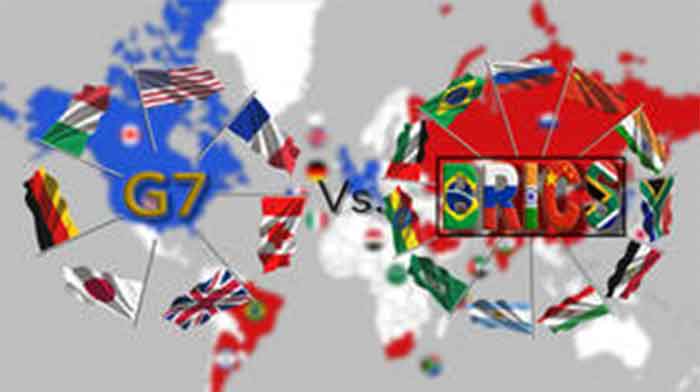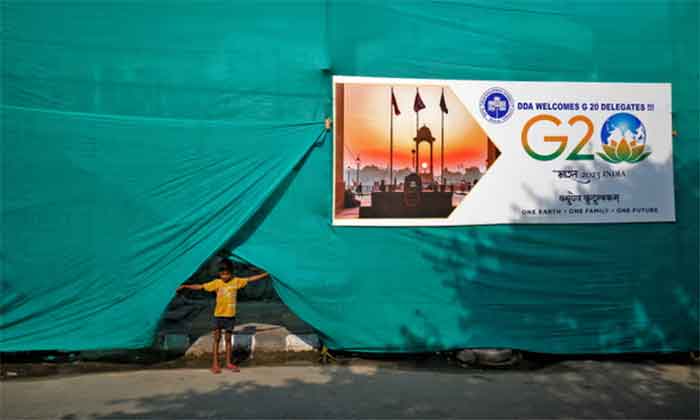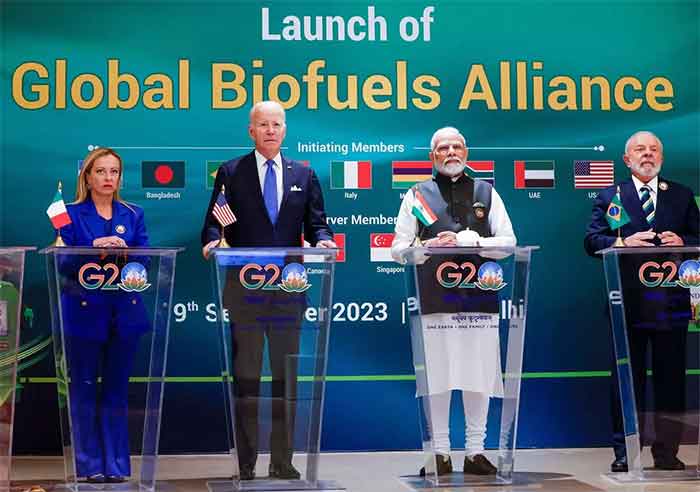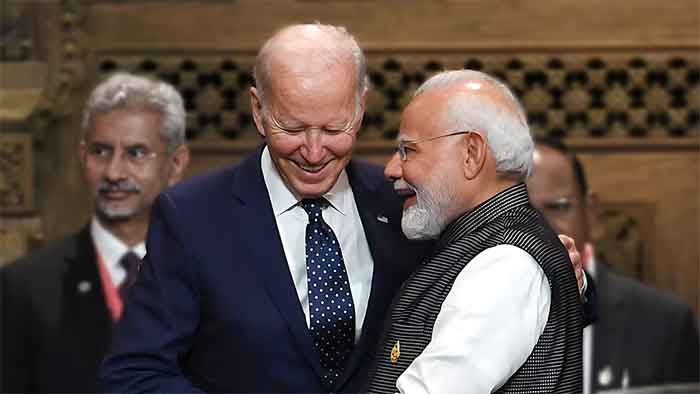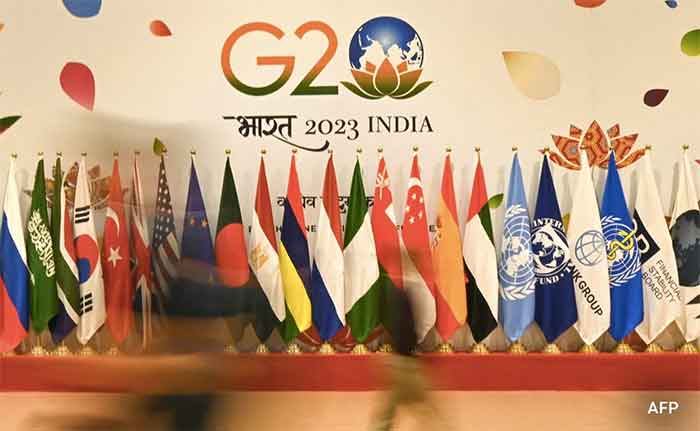
Defying speculations about G-20 concluding with adoption of a Joint Declaration, host country India succeeded in convincing participating countries and the summit concluded “successfully.” Apprehension on this issue were entertained in view of G-20 summit at Bali (2022) having struggled to pass the Joint Declaration owing to differences entertained regarding Ukraine-crisis, western sanctions against Russia and there being need to address issues such as post-pandemic recovery along with energy and food crisis. Given that Ukraine-crisis is still not showing any sign of involved nations considering diplomatic solution, it was but natural to be skeptical about whether a Joint Declaration would be adopted. Well, since it has been, India can for the time being compliment itself on this success. But as several questions are already being raised about certain issues linked with G-20, more are likely to be raised in the coming days.
Should India be credited for managing to reach a consensus on Joint Declaration without Russia being blamed for Ukraine-crisis? It may be noted, Russia was named as the “aggressor” in the Declaration adopted at Bali. Russian President Vladimur Putin was not present at Bali summit and was represented by Foreign Minister Sergey Lavrov. Russia was represented by Lavrov in Delhi too. Ukraine President Volodymyr Zelenskiy addressed the leaders gathered at Bali, virtually, calling for an end to Russian invasion, viewed by some as a diplomatic snub for Moscow. Ukraine did not participate at Delhi summit as the country had not been invited as a “special guest” as it was a year earlier at Bali. Ukraine is not a member of G-20 but, reportedly, tried its best to be invited for this summit. The country is certainly not pleased at being diplomatically sidelined by India. On the other hand, Russia has a lot to feel pleased about not being labelled as the “aggressor” and/or not being condemned in the declaration. Not surprisingly, while speaking at a press conference after the summit, Lavrov hailed it as an “unconditional success” and that a “milestone” had been reached. From this angle, the summit spells symbolically a diplomatic victory for Russia as at the summit, the West could not take forward its approach on many issues, including Ukraine.
What is regarded as “success” by Russia, particularly regarding Ukraine-crisis, cannot be expected to be viewed similarly by the West also. Of course, Ukraine has not refrained from openly wording its anger. Ukrainian foreign ministry spokesman Oleg Nikolenko wrote on Twitter/X, “We are grateful to the partners who tried to include strong wording in the text. However, in terms of Russia’s aggression against Ukraine, G-20 has nothing to be proud of.” This comment may be viewed as not just what Ukraine, but probably what its western supporters also feel about the Declaration. In the coming days, chances of more such comments being made cannot be ruled out.
The West has already begun explaining why the Declaration is suggestive of its approach on Ukraine having softened. Canadian Prime Minister Justin Trudeau said at a press conference on Sunday that the G-20 statement on Russian war in Ukraine would have been much stronger if Canada had its way. “If it was just up to me, it would have been stronger,” he reportedly said.
Opinions have also been, reportedly, voiced about invited G-20 members and global institutions not being included in deliberations on preparing the final statement. In Bali, they were included till almost the last. Besides, Ukraine-issue was included only towards the end after “consensus” had been reached on other issues. A senior European Union official, reportedly commented, “When looking at the Declaration, I think the fact that we have consensus around the document was far from clear until the very last moment.” This comment may also be interpreted about all delegates apparently not being totally clear about wordings of Declaration till the end. Notwithstanding these comments and/or criticism, the fact that India managed a diplomatically taxing task as it desired cannot be ignored. However pleased India and Russia maybe about this, the same cannot be said about the West. With certain key powers having an eye on India’s market, it is possible they chose to sideline their diplomatic stand on Ukraine in Delhi. However, they have not backtracked from supporting Ukraine and condemning Russia.
Economically as well as diplomatically, probably the best part of this summit was inclusion of African Union as permanent member of G-20. Irrespective of significance held by other issues, the summit touched upon, G-20’s role may well said to be limited to be that of cosmetic or symbolic diplomacy. This hard reality also poses questions about billions of dollars having been spend for this summit. Questions have certainly been raised on what gains can this expenditure really spell for India and its citizens? In fact, with the key parts of the capital city being practically sealed for three days, slums and similar dwellings being bull-dozed ahead of the summit, stray dogs removed cruelly and so much more, little importance was given to lives and earnings of those affected by such action.
Clearly, India didn’t want images of its poorer citizens and also stray dogs leave a negative impression on the visitors. Taking such “diplomacy” still further, as reports indicate, guests were served meals in gold and silver plated utensils. Thousands of flowers, trees and flower plants were brought from across the world to beautify the city. This includes purchase of one lakh (0.1 million) flower plants from eight countries, in addition to 2000 trees and 43 lakh (4.3 million) plants only for Delhi. Money spend on large-scale hoardings, billboards and banners with Prime Minister Modi’s images almost everywhere cannot also be missed. Even if parliamentary elections were not around the corner, given the importance Modi accords to going overboard about displaying his image, this communication strategy would probably have been exercised. However, in view of coming elections, critics haven’t refrained from linking display of such pomp and show as a part of Modi’s electoral campaign. Some have even described this summit as not G-20 but Modi-summit.
Questions are also being raised regarding media, including the White House press corps, not being allowed into either the summit or bilateral talks. If US President Joe Biden could not express his stand on this issue in India, he voiced his opinion while addressing a press conference in Hanoi. Ahead of the summit, bilateral talks were held between Biden and Modi at the latter’s residence on Friday evening. Biden left for Vietnam on Sunday evening before the summit ended. During his discussions with Modi, Biden said in Hanoi, “I raised the important (subject) of respecting human rights and the vital role that civil society and a free press have in building a strong and prosperous country.”
“One Earth, One Family, One Future” was theme of this G-20 summit which as posters spread across capital city proclaimed was being hosted by “Mother of Democracy.” These slogans can at most be described as nothing but diplomatic hype. Beautification of the city played no role in enhancing credibility of these slogans. Rather, only diminished the same as the treatment of the poor indicates. With specific reference to Declaration, India’s “success” in ensuring a consensus for its adoption is not devoid of criticism from several quarters. Given that differences still prevail on certain key issues, what should be said about a Declaration apparently papered over cracks: – Failure, Hype or Success?
Nilofar Suhrawardy is a senior journalist and writer with specialization in communication studies and nuclear diplomacy. She has come out with several books. These include:– Modi’s Victory, A Lesson for the Congress…? (2019); Arab Spring, Not Just a Mirage! (2019), Image and Substance, Modi’s First Year in Office (2015) and Ayodhya Without the Communal Stamp, In the Name of Indian Secularism (2006).

